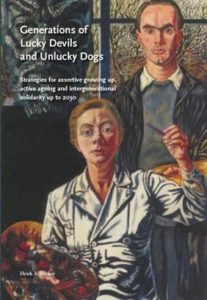Henk A. Becker ~ Generations of Lucky Devils and Unlucky Dogs
No comments yet Paperback
Paperback
16,5 x 24 cm
258 pag.
ISBN 978 90 361 0 277 3
2012
E-book ~ ISBN 987 90 361 0275 9
Silver-grey manpower is a gold mine to society. One by one, the baby boom cohorts will reach the age of 65 starting from 2010. They are large cohorts, relatively well educated and healthy with considerable pension and health care rights. In short, they are lucky devils. As a result of ageing, cohorts that were born in 1985 onwards and that enter the labour market as from approximately 2010 will be required to pay many additional taxes during the course of their entire working life spanning more than forty years. They are, in short, unlucky dogs. Redistribution of joys and burdens could trigger conflicts between generations. A better solution is to identify and deploy society’s hidden resources.
Taking this issue as a basis, the book in hand explores strategies that enable senior citizens and young people to give meaning to solidarity among generations, for a start in 2012 as the European Year for Active Ageing, but also as part of Europe 2020, the European Commission’s 2010-2020 strategy.
With these two strategies journalists and television producers will swing into action. In secondary and higher education as well as in universities more papers on life courses and patterns of generations will be written than ever before. Senior citizens’ unions but actually all social organizations will organize lectures. Educated laymen will wish to go deeply into this issue.
Henk A. Becker (1933) is Professor Emeritus of Sociology at Utrecht University in the Netherlands. He has worked on a research project focusing on generations since 1985.
You May Also Like
Comments
Leave a Reply







